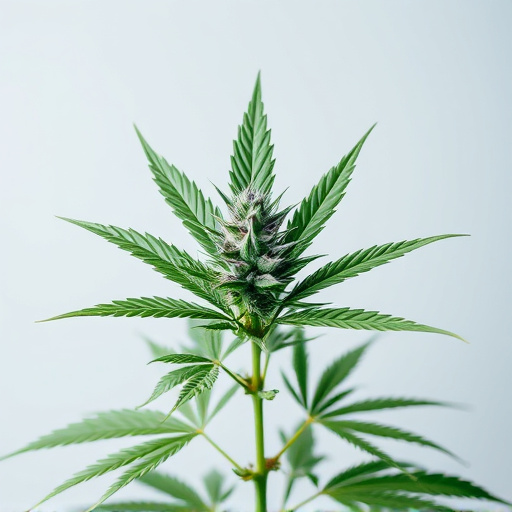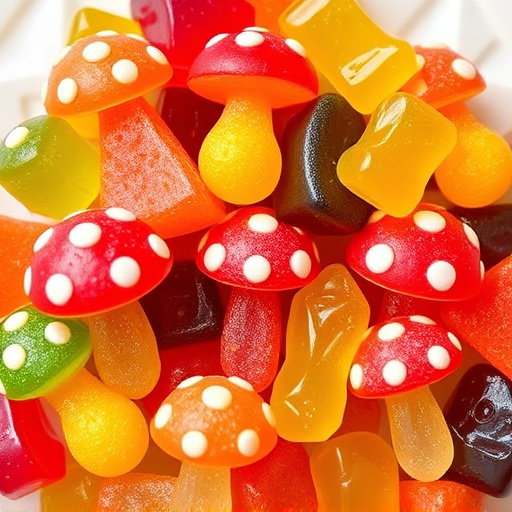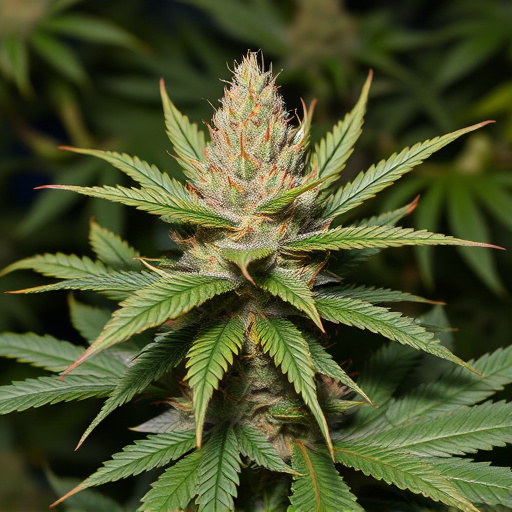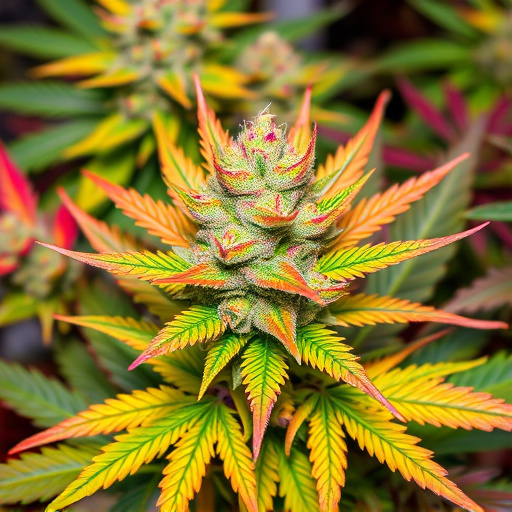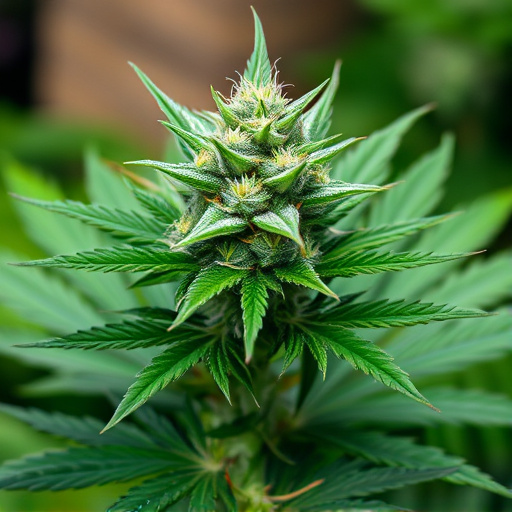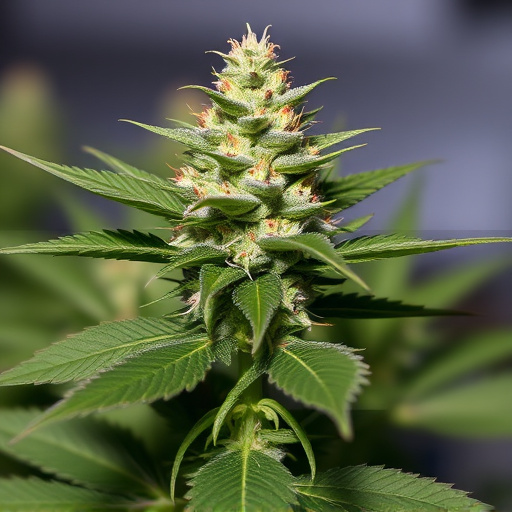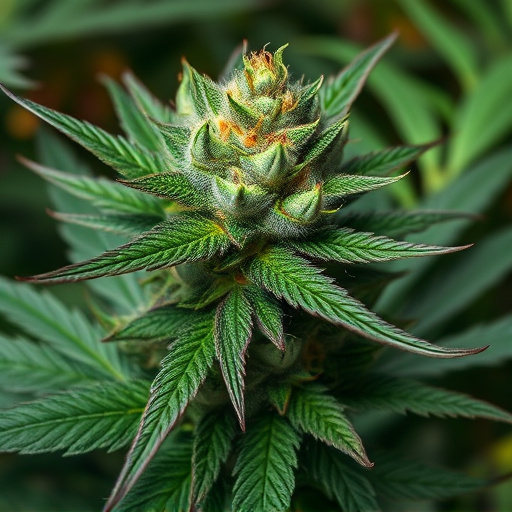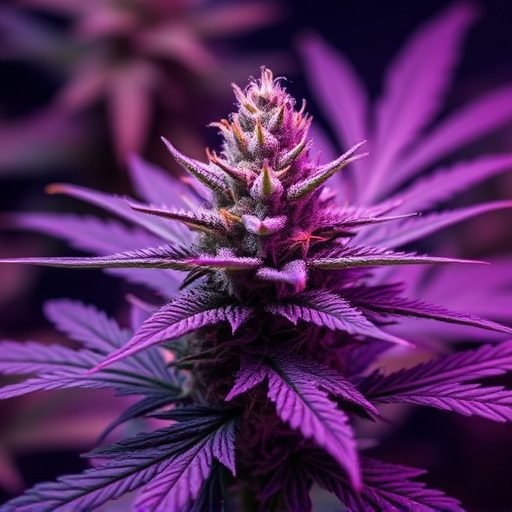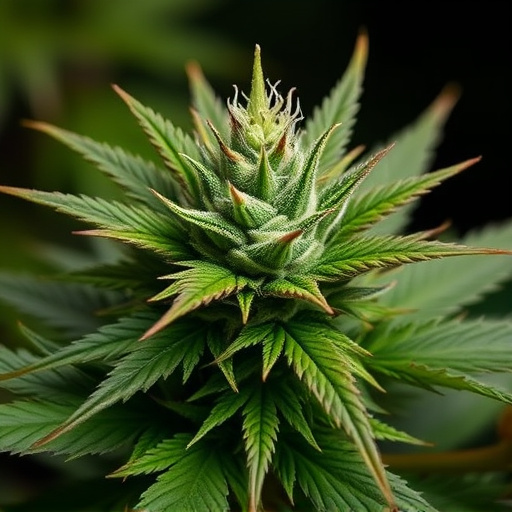Potent cannabis strains contain compounds like THC and CBD that interact with dopamine and serotonin receptors, influencing reward, pleasure, mood, and memory. THC increases dopamine release, potentially causing euphoria, while CBD enhances serotonin availability, contributing to anxiety reduction. This complex interplay warrants further research to understand both therapeutic benefits and risks of potent cannabis strains for dopamine- and serotonin-related disorders.
Cannabis has long been known for its psychoactive effects, but its impact on neurotransmitters like dopamine and serotonin is a complex and fascinating area of study. This article delves into the intricate relationship between cannabis consumption and these ‘feel-good’ chemicals, responsible for pleasure and mood regulation. We explore how different strains, particularly potent cannabis strains, can interact with the brain’s chemistry, offering potential therapeutic benefits while highlighting the importance of further research.
- Understanding Dopamine and Serotonin: The Neurotransmitters of Pleasure and Mood Regulation
- Cannabis and Its Impact on Dopamine and Serotonin Systems
- Potent Cannabis Strains: Effects on Brain Chemistry and Potential Therapeutic Benefits
Understanding Dopamine and Serotonin: The Neurotransmitters of Pleasure and Mood Regulation
Dopamine and serotonin are two key neurotransmitters that play a pivotal role in regulating our mood, pleasure, motivation, and reward systems within the brain. Often referred to as the “feel-good” neurotransmitters, they are deeply intertwined with our emotional well-being and overall sense of satisfaction.
Dopamine is associated with pleasure, reward, and motivation, triggering feelings of euphoria and driving behaviors that reinforce these sensations. Serotonin, on the other hand, influences mood, sleep, appetite, and cognitive functions. Imbalances or disruptions in these neurotransmitters have been linked to various mental health conditions. Interestingly, potent cannabis strains are known to interact with both dopamine and serotonin receptors, offering a complex interplay of effects that can further our understanding of how cannabis influences our brain’s reward and mood regulatory systems.
Cannabis and Its Impact on Dopamine and Serotonin Systems
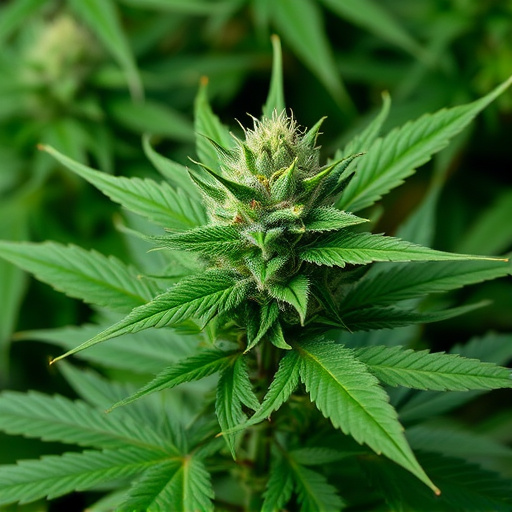
Cannabis interacts with the brain’s neurotransmitter systems, including dopamine and serotonin, which play pivotal roles in reward, pleasure, mood regulation, and memory. Potent cannabis strains contain various chemical compounds, such as tetrahydrocannabinol (THC) and cannabidiol (CBD), that can modulate the activity of these neurotransmitters. THC primarily binds to CB1 receptors in the brain, mimicking naturally occurring endocannabinoids and potentially increasing dopamine release in reward-related areas. This can lead to feelings of euphoria and heightened pleasure, contributing to cannabis’ psychoactive effects.
Serotonin, on the other hand, is involved in mood stabilization, appetite control, and sleep regulation. CBD, present in many potent cannabis strains, has been shown to interact with serotonin receptors, potentially enhancing its availability. This interaction may contribute to cannabis’ anxiolytic (anxiety-reducing) properties and its ability to improve mood. The complex interplay between THC, CBD, and other cannabinoids makes understanding the precise effects of cannabis on dopamine and serotonin systems an ongoing area of research, shedding light on both therapeutic potential and risks associated with cannabis use.
Potent Cannabis Strains: Effects on Brain Chemistry and Potential Therapeutic Benefits
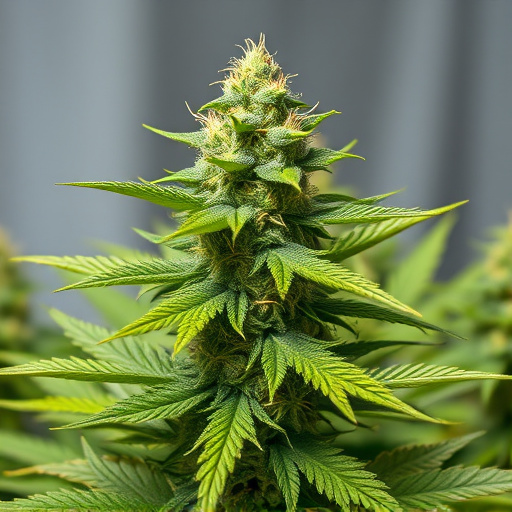
Potent cannabis strains have been a subject of interest for their potential to influence brain chemistry, particularly dopamine and serotonin levels. These neurochemicals play crucial roles in regulating mood, motivation, and pleasure. High-potency varieties often contain elevated levels of tetrahydrocannabinol (THC), the primary psychoactive compound known for its significant impact on the endocannabinoid system. When consumed, THC can bind to cannabinoid receptors in the brain, leading to various effects, including increased dopamine release, which is associated with feelings of pleasure and reward.
Furthermore, some studies suggest that specific potent cannabis strains may have therapeutic benefits related to serotonin. Serotonin is a neurotransmitter that contributes to emotional well-being and mental health. Certain cannabis compounds, such as cannabidiol (CBD), have shown promise in research for their potential to modulate serotonin levels, offering insights into their role in treating conditions like depression and anxiety. The complex interplay between these potent strains and brain chemistry highlights the need for further exploration, especially in the context of developing novel therapeutic applications for both dopamine- and serotonin-related disorders.
In conclusion, cannabis interacts with our brain’s dopamine and serotonin systems, influencing pleasure and mood regulation. While recreational use can lead to temporary euphoria, understanding the complex relationship between cannabis, especially potent cannabis strains, and these neurotransmitters is crucial for navigating its potential therapeutic benefits. Further research into these interactions offers hope for developing effective treatments for various conditions, highlighting the significance of exploring potent cannabis strains within controlled, scientific settings.
